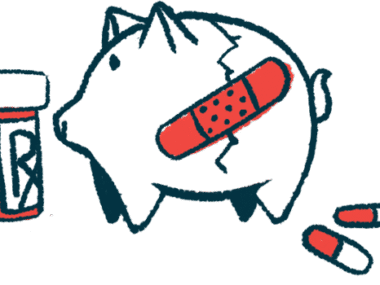FDA names volixibat, for itching due to PBC, a breakthrough therapy
Oral treatment in Phase 2b trials for this and another form of chronic cholangitis
Written by |

The U.S. Food and Drug Administration (FDA) has designated Mirum Pharmaceuticals’ oral candidate volixibat a breakthrough therapy for the treatment of itching, or pruritus, in people with primary biliary cholangitis (PBC) based on initial findings in a Phase 2b clinical trial.
Breakthrough therapy status is intended to speed the development and review of medications for serious or life-threatening illnesses that clinical trials have shown may offer benefit over existing therapies. With the designation, developers are given more frequent and intensive communication with the FDA regarding the therapy’s development, and they also may be eligible for expedited review of an approval application.
“Breakthrough Therapy Designation for volixibat in PBC underscores the importance and urgency for a treatment to address one of the most burdensome impacts of this rare liver disease,” Joanne Quan, MD, Mirum’s chief medical officer, said in a company press release.
Mirum anticipates filing for treatment’s approval if trial results positive
The FDA based its decision on interim results from the ongoing VANTAGE clinical trial (NCT05050136), which showed that volixibat was significantly better at easing pruritus than a placebo in adults with PBC.
VANTAGE now is in its confirmatory phase, testing the selected optimal dose in an additional group of PBC patients. The trial is enrolling adults with PBC-related pruritus at sites in the U.S., Europe, and Israel, and expects to finish recruiting a total of 180 patients in 2026.
The company previously indicated that should the findings be positive, data from VANTAGE could support regulatory applications for volixibat’s approval in PBC.
“We look forward to advancing our VANTAGE study with the goal of making volixibat available to patients living with PBC-related itch as quickly as possible,” Quan noted.
Pruritis, or itchy skin, is due to bile acids entering the bloodstream
PBC is characterized by chronic cholangitis, where there’s inflammation in the series of tubes, called the bile ducts, that carry the digestive fluid bile from the liver to the intestines. Over time, this inflammation can damage the bile ducts and cause stalled bile flow or cholestasis.
Consequently, bile can start to accumulate in the liver, seriously damaging the organ. Bile acids backing up into the bloodstream lead to the itchy skin sensation that defines pruritus.
Volixibat works by inhibiting the ileal bile acid transporter protein that is normally responsible for recycling bile acids from the intestines back to the liver.
By doing so, the treatment promotes bile acid excretion through the stool, thereby preventing its accumulation in the liver and bloodstream. Ultimately, this is expected to ease pruritus and other PBC symptoms.
In the first part of VANTAGE, adults with moderate or severe pruritus due to PBC were randomly assigned to oral volixibat at either of two doses — 20 mg or 80 mg — or to a placebo capsules, taken twice daily for about six months.
Trial findings indicate volixibat eases pruritis, lower bile acid levels in blood
Interim results showed that either treatment dose led to significant reductions in pruritus relative to a placebo after six months, with benefits observed a week after starting treatment.
Moreover, the treatment was associated with significant reductions in blood bile acids and fatigue. Safety findings indicated that the most common side effect was mild or moderate diarrhea.
Based on those findings, the study moved into its confirmatory phase, which is testing the twice daily 20 mg dose against a placebo.
A similarly designed Phase 2b trial called VISTAS (NCT04663308) is testing volixibat in people with pruritus due to primary sclerosing cholangitis (PSC), another disease characterized by chronic cholangitis.
Mirum previously indicated that VISTAS also met prespecified safety and efficacy thresholds and has moved into a confirmatory phase testing volixibat twice daily at a 20 mg dose. VISTAS is recruiting up to 200 PSC patients with pruritus, ages 12 and older, at sites in the U.S., Argentina, Canada, Europe, and Israel.



